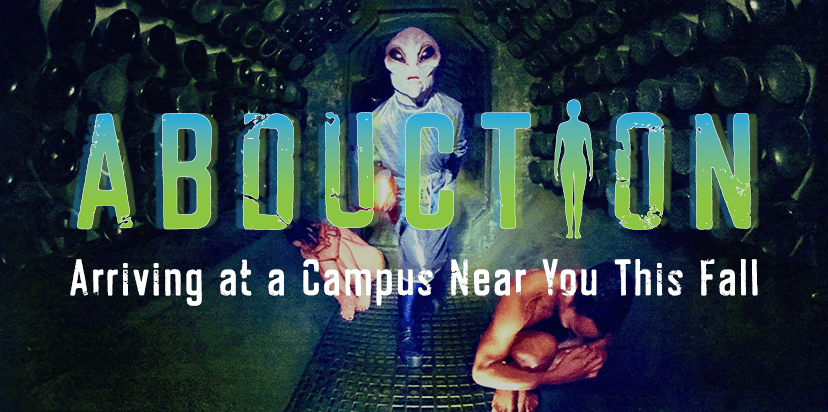To encourage empathy for animals suffering in university laboratories, PETA is visiting the University of Denver today with Abduction, a unique virtual reality experience landing on college campuses across the country. In this eerie experience, visitors will enter a mysterious truck containing a mobile virtual reality studio. The students will seemingly find themselves stranded in the desert with a couple of fellow humans, abducted by aliens, taken aboard a spaceship, and subjected to a shocking experience, similar to what animals endure in laboratories. They’ll watch as their friends are subjected to painful tests—knowing that they’ll be next.
When: Today, Tuesday, October 24, 11 a.m.–4 p.m.
Where: Campus Green, near Community Commons, University of Denver
Watch the trailer here. Broadcast-quality footage of the Abduction virtual reality experience is available upon request.
Experimenters at the University of Denver subjected mice to numerous repeated traumatic brain injuries—shaving their heads, immobilizing them, and striking them on the head five times every 48 hours for up to 10 consecutive days—likely causing loss of consciousness, memory impairment, nausea, dizziness, and other debilitating symptoms. At the end of the experiment, the mice were killed and dissected. Experimenters also bred mice to show symptoms of Down syndrome and amyotrophic lateral sclerosis (ALS), implanted pumps under their skin, and injected them with chemicals. Some mice became so debilitated that they couldn’t stand up. At that point, they were decapitated.
“Many students don’t know that on their own college campuses, frightened and confused animals are being psychologically tormented, mutilated, and killed in laboratories, with no way to escape or even understand what’s happening to them,” says Senior Director of peta2 Rachelle Owen. “PETA is on a mission to open young people’s eyes to this cruelty, help students understand what it feels like, and motivate them to join our call for a switch to superior, non-animal research.”
Studies show that 90% of all basic research—most of which involves animals—fails to lead to treatments for humans, which is why PETA is pushing universities to pivot to sophisticated, human-relevant research methods.
Abduction—which was filmed in VR180 with assistance from the immersive content creation studio Prosper XR—has stopped at nearly three dozen other college campuses over the last year, including Harvard University, the Massachusetts Institute of Technology, the University of California–Los Angeles, and the University of Texas at Austin.
PETA—whose motto reads, in part, that “animals are not ours to experiment on”—opposes speciesism, a human-supremacist worldview. For more information on PETA’s investigative newsgathering and reporting, please visit PETA.org, listen to The PETA Podcast, or follow the group on X (formerly Twitter), Facebook, or Instagram.
The post New PETA Virtual Reality Experience Promises Close Encounters at University of Denver appeared first on PETA.

